views
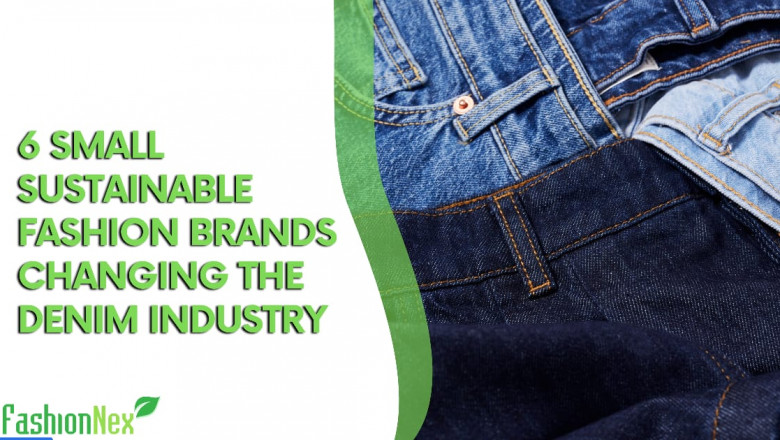
On April 24, it will be ten years since the Bangladesh factory collapse known as the Rana Plaza. Due to a lack of safety safeguards, 1,138 garment workers who were sewing for fast fashion labels perished on that day. Global unions implemented the Bangladesh Fire and Safety Accord, a legally binding agreement for textile brands to improve worker safety, in reaction to the collapse of the Rana Plaza. The International Accord was introduced in May 2021 after the Bangladesh Accord expired in May 2018. Since then, the Accord has been extended to Pakistan due to the nation's significant influence in the textile industry.
By April 2023, more than 40 brands and shops had ratified the Pakistan Accord, which guarantees secure working conditions and advocates for the empowerment and protection of employees.
By April 2023, more than 40 brands and stores had ratified the legally-binding pact, which also encouraged worker empowerment and protection and supported collective bargaining agreements. To get a sense of the scale, it's important to realize that Pakistan's garment industry employs 4.4 million people or 40% of the nation's industrial employment. As a result, the textile and apparel sector serves as the main driver of the nation's economic expansion.
Levi Strauss & Co. and Wrangler, two of the biggest denim manufacturers in the world with operations in Pakistan, have not yet ratified the Pakistan Accord. Despite growing support for the Pakistan Accord from rival shops worldwide, these two denim companies disregard criticism and pass up the chance to establish themselves as industry leaders in worker safety.
Given the company's reputation for being socially responsible and its position as one of the top importers in Bangladesh and Pakistan, Levi's unwillingness to sign the Accord is noteworthy. By citing its safety initiatives, Levi's makes an effort to disprove accusations. But it's important to remember that neither of these programs is a worker- or legally-driven. Even Levi's Sustainability Report admits that safety and health breaches are frequent in their factories. 4.4 million employees, or 40% of Pakistan's industrial workforce, are employed in the garment industry.
International denim companies like Levi's can only maintain their relevance over time by demonstrating awareness of moral and ethical issues. Today's large firms must compete with up-and-coming brands that have social and environmental justice at the core of their business strategies while swimming against a powerful undercurrent of protest. Companies like Levi's ultimately face the risk of being replaced by alternatives by neglecting workers' rights.
True sustainability in the fashion industry cannot exist if those who produce our clothing cannot do so with dignity. Therefore, major fashion companies like Levi's and Wrangler, which have significant purchasing power and supply chain influence, must band together to establish higher industry-wide standards for social as well as environmental sustainability.
Unfortunately, businesses aren't taking this step of their own free will, thus legally binding agreements must take the place of brands acting voluntarily. Organizations like Ek are leading the charge, working in tandem with Remake to press companies like Levi's, IKEA, and Amazon to #SigntheAccord and defend workers in Bangladesh and Pakistan. Eko published a petition in April 2023, and it has received almost 47,487 signatures so far, from consumers demanding changes.
Fortunately, some companies have already committed to morality and the environment. We're featuring a few denim companies that compete with Levi's and Wrangler to start Earth Month. Here are six denim companies that are making headway in at least one social or environmental sustainability area.
1. Boyish Jeans
Boyish Jeans is a women's sustainable denim brand that emphasizes retro shapes. According to the company, producing one pair of jeans typically requires using approximately one-third less water. Utilizing non-toxic plant-based colors helps maintain clean water and create a secure working environment for their employees. It uses novel fibers like Tencel, recycled and deadstock textiles and certified organic cotton in its jeans. Boyish prioritizes circularity throughout the entire production process, recycling waste materials like paper, metal, labels, and shipping tags.
Next steps for Boyish Jeans: Boyish says that all of its garment employees earn at least over the minimum wage and that company is working to ensure that all workers earn at least a living wage. As a next step, the company should offer more particular information on how it is comparing living pay rates across all of its countries of production, as well as on the progress it has achieved towards its living wage objectives.
2. ETICA DENIM
ÉTICA Denim is a sustainable denim company that was established in Los Angeles in 2010. The company has been committed from the start to producing eco-friendly denim, using recycled and organic cotton in its manufacturing. The company says that it is utilizing technology to reduce its usage of water by 90%, electricity by 63%, and chemicals by 70% in comparison to industry standards. Sedex and Bluesign, two of the most well-known independent watchdogs, examine Etica's facilities and mills. To achieve maximum accountability, both their supply chain and the products they utilize prominently possess a variety of third-party certifications.
For ÉTICA Denim, the next steps are: Sustainability on both a social and environmental level is deeply ingrained in the Etica business model. Plans for the company could include increasing its use of organic cotton from 70% to 100% to further reduce the negative environmental effects of cotton growing.
3. MUD Jeans
MUD Jeans makes sure that its denim remains in the loop by becoming a circular denim company. The remaining 60% of MUD jeans are made from certified organic cotton, with 40% of them currently being made from recycled cotton thanks to the recycling of old jeans from its consumers. From circular design to the ability to repair, upcycle, and even lease jeans—customers have the option of leasing jeans for $10 a month—circularity is fully ingrained in every phase of a MUD jeans lifecycle. By using water recycling facilities and alternative energy sources, the company also lessens its influence on the environment.
The subsequent steps for MUD Jeans: the company is finishing a wage study through facility audits and has set the highly admirable and important aim of guaranteeing that every employee in its supply chain is paid more than the minimum wage. MUD Jeans should give updates on this effort as these studies are completed, supported by transparent pay data, and provide its living wage benchmarking technique.
4. Nudie Jeans
The Swedish denim company Nudie Jeans has been spreading "the naked truth about denim" since 2001, as its tagline suggests. Their certified organic cotton is used to make 100% of their jeans, reducing the need for pesticides and water. Each set of Nudie jeans comes with the guarantee of free repairs, but what strikes out is the company's dedication to circularity. Customers have the option of receiving a free repair kit in the mail or bringing their jeans to any of their maintenance locations to have them repaired, sold as used clothing or donated. Along with holding many independent licenses for their supply chain, which is 98% regulated, Nudie Jeans also conducts routine audits with garment workers.
Next actions for Nudie Jeans: Nudie Jeans is trying to ensure fair wages for its supply chain workers, having already launched a fair wage program at three of its Indian suppliers and one Turkish supplier – all of which the company certifies presently earn living wages. In addition to announcing its goals toward achieving living wages for all Tier 1 factory workers, the corporation needs to submit thorough year-on-year data to demonstrate progress towards, and continuous extension of, the program.
5. One Teaspoon
One Teaspoon is a womenswear and childrenswear brand that was established in Sydney. The brand is dedicated to lessening its environmental impact even though it does not promote itself as being entirely sustainable. It accomplishes this by utilizing Tencel, a semi-synthetic fiber used to create textiles for clothes, as well as organic and recycled cotton. Additionally, One Teaspoon collaborates with the Good Cotton Initiative (BCI), a program that seeks to safeguard cotton sourcing and enhance farmer livelihoods.
The next phase for One Teaspoon: At the moment, it appears that the company's sustainability initiatives are solely focused on materials, with minimal mention of social initiatives relating to the well-being of its workforce and the communities along its supply chain. The corporation must publish its list of suppliers, implement, and disclose information about the circumstances of employment of the textile workers in its supply chains as it does not know the working conditions in its garment manufacturing facilities.
6. Re/Done
One of the most well-known sustainable denim businesses, RE/DONE is beloved by celebrities and a renowned upcycling pioneer. It is renowned for its environmentally friendly approach to fashion and for transforming antique Levi's jeans into current, in-vogue looks. The firm was able to divert more than 200,000 garments from the landfill and create each pair of jeans in a distinctive style by using premium, genuine denim throughout the 1950s to the 1990s. Re/Done now works with many brands and creates their collections, using repurposed or organic materials in some cases. In addition to making its garments in the United States, RE/DONE promises to cut water and CO2 emissions and has a zero-waste philosophy.
Re/Done's next steps: According to RE/DONE, it exclusively collaborates with manufacturers that offer "quality employment opportunities and reasonable salaries to all employees." The corporation must then support this claim by disclosing in the public arena both what it considers to be a "liveable wage" and the actual salaries paid to garment manufacturers in the nations where it sources its materials. To demonstrate that employees are being paid adequately to cover their necessities and some discretionary spending, this information must be made public.
Related Articles-

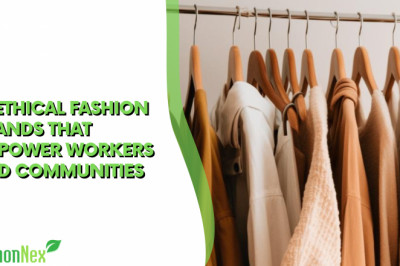

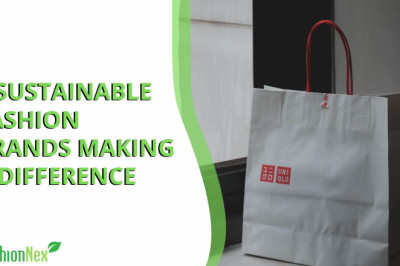
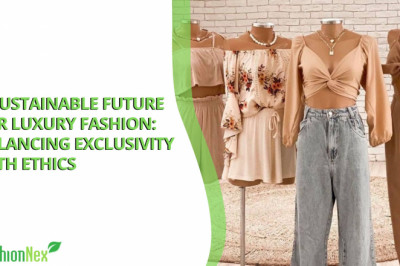
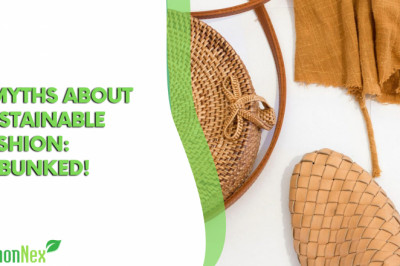

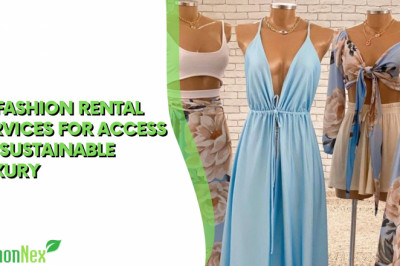
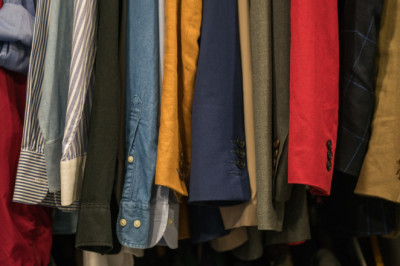

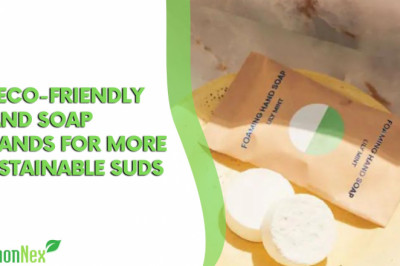
Comments
0 comment